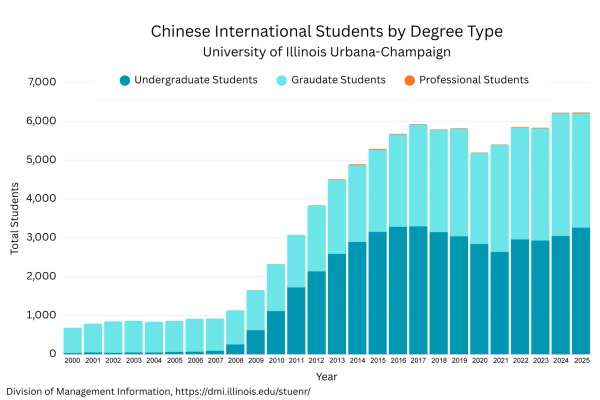Judge rules Illinois pension reform bill as unconstitutional
Dec 11, 2014
Last updated on May 10, 2016 at 11:07 p.m.
Sangamon County Circuit Court Judge John Belz ruled Illinois Senate Bill 1, more commonly known as Illinois’ pension reform bill, to be in violation of the state’s constitution on Nov. 21. The pension reform bill was passed on Dec. 3, 2013.
In his written opinion, Belz said, “On its face, the Act impairs and diminishes the benefits of membership in State retirement systems in multiple ways,” including reducing the amount of annuity that retirees can receive, capping the pensionable salary of members of select state retirement systems and raising the retirement age for certain retirement systems.
John Colombo, interim dean of the College of Law, said supporters of the bill knew it was in violation of the Illinois constitution when they passed it, but claimed that they had the legal authority to do so. It was this theory that he said Belz addressed in the ruling.
“The legal theory is essentially, ‘Yes, we know it diminishes pension benefits, but the legislature has residual authority to do that in times of crisis; this is a time of crisis, and therefore we should be allowed to do it,’?” Colombo said.
Get The Daily Illini in your inbox!
Belz said because SB 1 diminishes and impairs pension benefits and does not have any clear defense, the Court concluded that the act violated the Pension Protection Clause of the Illinois Constitution.
Article XIII, section five of Illinois’ constitution states that, “Membership in any pension or retirement system of the State, any unit of local government or school district, or any agency or instrumentality thereof, shall be an enforceable contractual relationship, the benefits of which shall not be diminished or impaired.”
Supporters of the pension reform bill were quick to criticize the decision. Right-leaning think tank Illinois Policy Institute issued a report the same day of the ruling, expressing its concern that without significant reform to the state’s pension system, Illinois’ debt will continue to rise with little hope of slowing down.
“As long as SB 1 is tangled up in the courts, Illinois’ massive pension debt will continue to balloon,” said Ben VanMetre, senior budget and tax policy analyst, in the report. “The unfunded pension liability is so large today that it would take three years of a complete government shutdown, during which the entire general fund went toward pensions, just to break even.”
According to the Commission on Government Forecasting and Accountability, Illinois unfunded pension liability is roughly $111.2 billion. In the report, VanMetre said that Illinois could face credit downgrades over its massive unfunded pension liability, and that the pension systems themselves could soon face bankruptcy.
However, opponents of SB 1 have hailed the ruling as a victory for Illinois public sector workers across the state.
Ricky Baldwin, assistant director of the Service Employees International Union Downstate Division, expressed his satisfaction with Belz’s decision to strike down SB 1.
“The short answer is ‘we told you so,’?” Baldwin said. “The unions said it was unconstitutional from the beginning, we told everybody who would listen that it was unconstitutional, and lo and behold, it’s unconstitutional.”
Baldwin said while the pension system is in dire need of reform, the legislators themselves are to blame for its role in Illinois’ climbing debt, not the beneficiaries who have already made their pension payments.
“The state can’t pay its bills, and the pension is one of them,” Baldwin said. “But the only reason it became a huge problem for the pension is because it’s constitutionally required to pay that bill, with interest, if they (legislators) don’t make a payment.”
However, SB 1 is far from a dead bill. Illinois law mandates that the Illinois Supreme Court reviews all district court rulings that strike down an Illinois statute. Colombo said that while he believes the Court will likely uphold Belz’s decision, the nature of their ruling could have major implications for future pension reform legislation.
“The Illinois Supreme Court is going to uphold Judge Belz’s opinion,” said Colombo. “I think the only real question is, how will they do that?”
Colombo said the length of the Court’s opinion is key. The justices could either issue a summary opinion in which they simply express their agreement with Belz, or they could take the appeal, put it on an expedited schedule with the first hearings as early as January and hear oral arguments in March.
The Court could also potentially issue an advisory opinion, in which they would outline how pension reform could be achieved constitutionally, but Colombo said that this is unlikely.
“Courts, particularly supreme courts, don’t get involved in what we call advisory opinions; they generally just decide the issue that’s in front of them is, ‘Is this law constitutional?’” Colombo said. “Given the state’s arguments, I could see this being a two-page opinion.”
Josh can be reached at [email protected].





